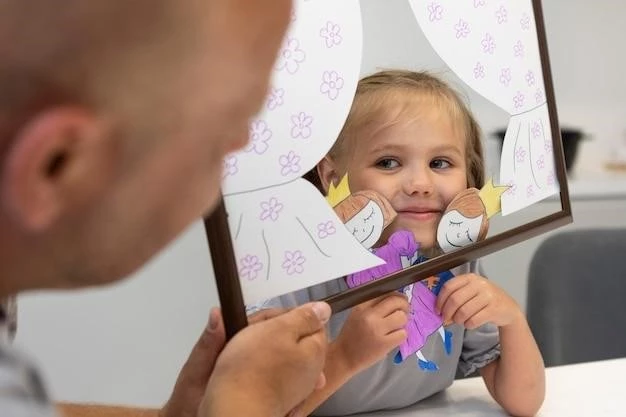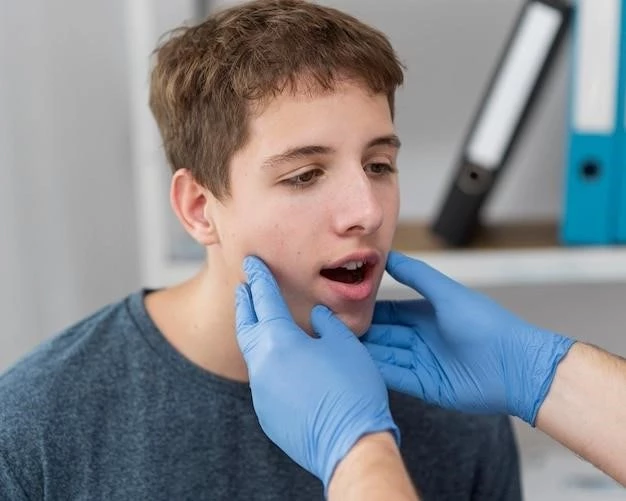Freire–Maia Odontotrichomelic Syndrome
Introduction to Freire–Maia Odontotrichomelic Syndrome
Freire-Maia Odontotrichomelic Syndrome is a rare genetic disorder characterized by skeletal anomalies, dental abnormalities, and limb dysplasia. This hereditary condition is caused by a mutation in a specific gene or chromosomes. Individuals with this syndrome present with distinct physical characteristics, including abnormal teeth, shortened limbs, and skeletal deformities.
The diagnosis of Freire-Maia Odontotrichomelic Syndrome is made based on clinical evaluation, genetic testing, and imaging studies. Treatment options focus on managing symptoms, which may include orthopedic surgery for limb abnormalities and dental interventions for oral issues. The prognosis varies depending on the severity of skeletal anomalies and dental problems, with early intervention improving long-term outcomes.
Ongoing medical research is aimed at further understanding the genetic basis of the syndrome and exploring novel treatment approaches. The management of individuals with Freire-Maia Odontotrichomelic Syndrome requires a multidisciplinary healthcare team, including orthopedic specialists, geneticists, and dental professionals. Providing psychological and social support to patients and their families is essential in enhancing their overall well-being.
Understanding the Genetic Basis
The genetic basis of Freire-Maia Odontotrichomelic Syndrome involves a hereditary mutation in a specific gene or chromosomes. This rare condition results from genetic abnormalities that affect the development of skeletal structures, dental patterns, and limb growth. The mutation leads to the manifestation of skeletal anomalies, dental abnormalities, and limb dysplasia seen in individuals with the syndrome.
Researchers continue to investigate the exact gene or chromosome that is responsible for the syndrome to enhance diagnostic capabilities and develop targeted treatment strategies. Understanding the genetic underpinnings of Freire-Maia Odontotrichomelic Syndrome is crucial for advancing genetic counseling, early detection of the condition, and facilitating personalized medical care for affected individuals.
Through genetic studies and molecular analyses, scientists aim to elucidate the mechanisms by which the mutation disrupts normal skeletal and dental development. This knowledge is essential for designing future interventions that can potentially modify the course of the syndrome, improve treatment outcomes, and enhance the quality of life for those living with Freire-Maia Odontotrichomelic Syndrome.
Diagnostic Criteria for Freire–Maia Odontotrichomelic Syndrome
The diagnostic criteria for Freire-Maia Odontotrichomelic Syndrome involve a comprehensive evaluation of clinical features, imaging studies, and genetic testing. Common diagnostic indicators include skeletal anomalies such as limb dysplasia, dental abnormalities, and distinctive facial characteristics. Imaging techniques like X-rays and CT scans can reveal specific bone deformities associated with the syndrome.
Genetic testing plays a crucial role in confirming the presence of a mutation in the gene or chromosomes linked to Freire-Maia Odontotrichomelic Syndrome. Identifying the genetic aberration provides definitive evidence for diagnosing the condition and can help predict the potential progression of skeletal and dental issues in affected individuals.
A multidisciplinary approach involving orthopedic specialists, geneticists, and dentists is essential for accurate diagnosis and effective management of the syndrome. By understanding the diagnostic criteria for Freire-Maia Odontotrichomelic Syndrome, healthcare providers can tailor personalized treatment plans and provide individuals with appropriate care based on their specific needs and medical history.
Skeletal Anomalies Associated with the Syndrome

Freire-Maia Odontotrichomelic Syndrome is characterized by a spectrum of skeletal anomalies that affect the bones and structure of the limbs. Common skeletal abnormalities seen in individuals with the syndrome include limb dysplasia, shortening of the limbs, fusion of bones, and joint abnormalities. These anomalies can result in functional limitations, deformities, and mobility challenges.
The skeletal anomalies associated with the syndrome can vary in severity and presentation. Some individuals may exhibit more pronounced limb shortening or bone deformities, while others may have milder skeletal abnormalities. The unique combination of skeletal features in each patient necessitates tailored treatment approaches that address specific skeletal issues to improve mobility, function, and quality of life.
Orthopedic evaluation plays a crucial role in assessing and managing the skeletal anomalies linked to Freire-Maia Odontotrichomelic Syndrome. Treatment options may include orthopedic interventions such as bone lengthening procedures, corrective surgeries to address joint abnormalities, and physical therapy to enhance function and mobility. Through targeted orthopedic care, individuals with the syndrome can achieve better musculoskeletal outcomes and overall well-being.
Dental Abnormalities in Freire–Maia Odontotrichomelic Syndrome
Individuals with Freire-Maia Odontotrichomelic Syndrome commonly present with a range of dental abnormalities that distinguish the syndrome. These dental issues may include abnormally shaped teeth, missing teeth, delayed tooth eruption, overcrowding, and malocclusion. The unique combination of dental anomalies in affected individuals can impact oral health, aesthetics, and overall function.
Diagnosis of dental abnormalities associated with the syndrome typically involves a thorough oral examination by a dentist or dental specialist. Radiographic imaging such as dental X-rays may be utilized to assess the extent of dental deformities and plan appropriate interventions. Early detection of dental issues is essential for initiating timely treatment measures to prevent complications and improve oral health outcomes.
Treatment for dental abnormalities in individuals with Freire-Maia Odontotrichomelic Syndrome may involve a multidisciplinary approach that includes dental interventions such as orthodontic treatment, dental restorations, and tooth extractions if necessary. Dental professionals work collaboratively with other healthcare providers to address oral health concerns effectively and enhance the overall well-being of patients with the syndrome.
Treatment Options Available
The management of Freire-Maia Odontotrichomelic Syndrome focuses on addressing the skeletal anomalies and dental abnormalities associated with the condition. Treatment options vary based on the specific needs of each individual and may include orthopedic interventions, dental procedures, and supportive therapies.
Orthopedic surgery plays a significant role in managing skeletal anomalies such as limb dysplasia, bone deformities, and joint abnormalities in individuals with the syndrome. Surgical procedures may involve bone lengthening, corrective osteotomies, and joint reconstructions to improve function, mobility, and overall musculoskeletal health.
For dental abnormalities, treatment options may include orthodontic interventions to correct malocclusion, dental restorations to address damaged teeth, and oral hygiene measures to maintain oral health. Collaborative care between orthodontists, dentists, and other healthcare professionals is essential in delivering comprehensive dental treatment to individuals with the syndrome.
Supportive therapies such as physical therapy, occupational therapy, and speech therapy may complement surgical and dental interventions to enhance functional abilities and quality of life for patients with Freire-Maia Odontotrichomelic Syndrome. A multidisciplinary approach ensures that individuals receive holistic care tailored to their specific needs and promotes optimal outcomes in managing the condition.
Prognosis and Long-Term Outlook
The prognosis for individuals with Freire-Maia Odontotrichomelic Syndrome varies depending on the severity of skeletal anomalies, dental abnormalities, and associated health complications. Early diagnosis and intervention play a crucial role in improving long-term outcomes and quality of life for affected individuals.
With appropriate medical management, including orthopedic surgeries, dental treatments, and supportive therapies, many individuals with the syndrome can achieve improved mobility, functional independence, and oral health. Regular monitoring by healthcare professionals is essential to address any potential complications and ensure optimal management of the condition.
While the skeletal and dental features of Freire-Maia Odontotrichomelic Syndrome can present challenges, advancements in medical care and multidisciplinary approaches have enhanced the prognosis for individuals living with the condition. Ongoing research and advancements in treatment modalities continue to contribute to better prognoses and improved long-term outlooks for affected individuals and their families.
Current Medical Research and Developments
Ongoing medical research in Freire-Maia Odontotrichomelic Syndrome focuses on understanding the complex genetic mechanisms underlying the condition, identifying novel treatment targets, and improving diagnostic methods. Researchers are actively investigating the specific gene or chromosomes associated with the syndrome to enhance genetic testing accuracy and enable early detection.
Advancements in molecular biology and genetic sequencing technologies have facilitated the exploration of potential gene therapies and precision medicine approaches for individuals with Freire-Maia Odontotrichomelic Syndrome. By elucidating the molecular pathways disrupted by the genetic mutation, researchers aim to develop targeted interventions that may modify the progression of skeletal and dental abnormalities.
Clinical trials and collaborative research efforts are advancing our knowledge of the syndrome, paving the way for innovative treatment strategies and improved patient outcomes. The integration of cutting-edge genetic research with clinical practice holds promise for enhancing the management of Freire-Maia Odontotrichomelic Syndrome and providing individuals with more personalized and effective medical care.
Management Strategies for Individuals with the Syndrome
The management of individuals with Freire-Maia Odontotrichomelic Syndrome requires a comprehensive and multidisciplinary approach to address the complex needs associated with the condition. Effective management strategies encompass orthopedic care, dental interventions, supportive therapies, and psychosocial support to enhance the well-being of affected individuals.
Orthopedic management focuses on addressing skeletal anomalies through surgical procedures, physical therapy, and orthotic devices to promote mobility, function, and musculoskeletal health. Dental management involves early detection of dental abnormalities, orthodontic treatments, and preventive oral care measures to maintain optimal oral health and function.
Supportive therapies such as physical therapy, occupational therapy, and speech therapy play a vital role in improving functional abilities, independence, and quality of life for individuals with the syndrome. These therapies aim to address motor skills, activities of daily living, and communication skills to enhance overall well-being.
Psychosocial support is also essential in the management of Freire-Maia Odontotrichomelic Syndrome, providing emotional support, counseling, and resources for individuals and their families. By integrating comprehensive management strategies that address the physical, emotional, and social aspects of the condition, healthcare providers can optimize care and improve outcomes for individuals living with the syndrome.
Psychological and Social Support for Patients and Families
Psychological and social support are vital components of the holistic care approach for individuals with Freire-Maia Odontotrichomelic Syndrome and their families. Coping with a rare genetic disorder can present emotional challenges, and access to mental health services, counseling, and support groups can help individuals navigate their feelings and cope with the impact of the syndrome on their lives.
For patients, psychological support can assist in addressing anxiety, depression, and emotional distress that may arise from living with the syndrome and managing its associated medical interventions. Providing patients with a safe space to express their feelings, concerns, and fears can promote mental well-being and resilience.
Moreover, social support networks play a crucial role in connecting individuals and families affected by Freire-Maia Odontotrichomelic Syndrome with others who understand their experiences. Support groups, patient advocacy organizations, and online forums can offer a sense of community, shared understanding, and resources for navigating the challenges of the condition.
Empowering patients and families with information about the syndrome, available resources, and coping strategies can promote a sense of control, resilience, and improved quality of life. By integrating psychological and social support into the overall management plan, healthcare providers can enhance the holistic care approach and address the emotional well-being of individuals and families affected by the syndrome.
Conclusion
In conclusion, Freire-Maia Odontotrichomelic Syndrome is a rare genetic disorder characterized by skeletal anomalies, dental abnormalities, and limb dysplasia. The genetic basis of the syndrome involves hereditary mutations in specific genes or chromosomes, leading to the unique physical features seen in affected individuals.
Diagnosis of Freire-Maia Odontotrichomelic Syndrome requires a multidisciplinary approach encompassing clinical evaluation, genetic testing, and imaging studies. Treatment options focus on managing skeletal and dental issues through orthopedic interventions, dental procedures, and supportive therapies tailored to individual needs.
The prognosis for individuals with the syndrome varies based on the severity of symptoms and the effectiveness of medical management. Current medical research is advancing our understanding of the genetic underpinnings of the condition and exploring novel treatment modalities to improve patient outcomes.
By implementing comprehensive management strategies that address orthopedic, dental, psychological, and social needs, healthcare providers can enhance the overall well-being of individuals with Freire-Maia Odontotrichomelic Syndrome and support their families. Collaborative efforts between medical professionals, researchers, and support networks play a crucial role in optimizing care and empowering individuals affected by this rare genetic disorder;
